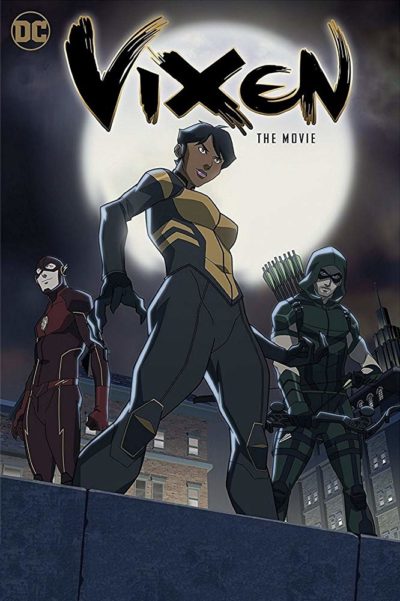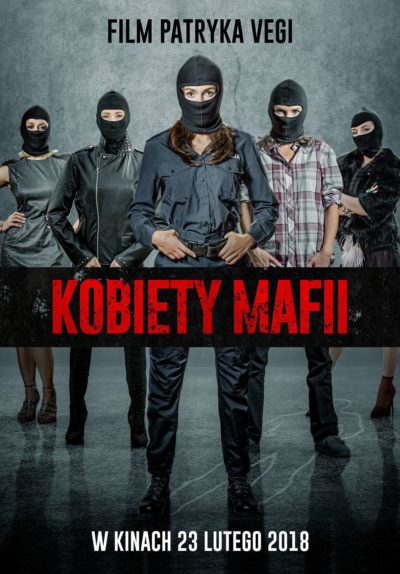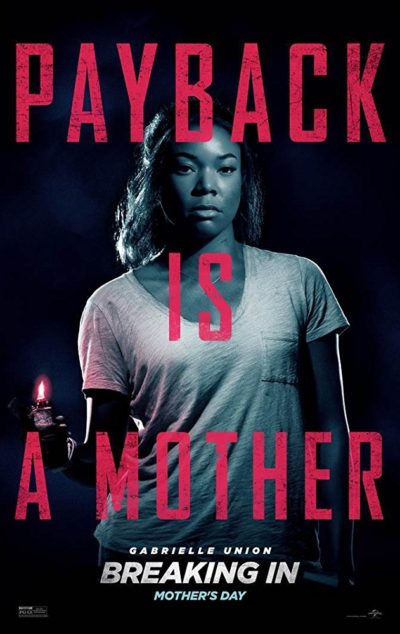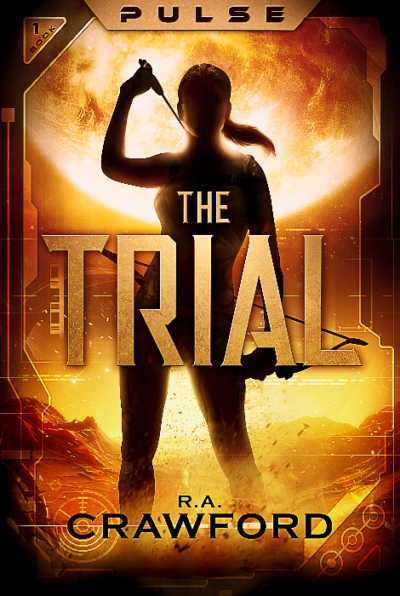★★★
“A case of Miss-Taken identity.”
 I’m tempted to award this an extra half-star, simply for pissing off liberal film critics, upset by the fact that most of the film is devoted to a white woman killing Latino drug dealers. Of course, they completely miss all the points, instead complaining – and these are direct quotes – there is “not a word about corporate complicity in the opioid crisis” and that the heroine’s “true enemy is a system of income inequality driven by hyper-capitalism.” Because, of course, if was hyper-capitalism which gunned down the husband and daughter of Riley North (Garner) in the parking lot of a fun-fair. Oh, my mistake: it was Latino drug dealers.
I’m tempted to award this an extra half-star, simply for pissing off liberal film critics, upset by the fact that most of the film is devoted to a white woman killing Latino drug dealers. Of course, they completely miss all the points, instead complaining – and these are direct quotes – there is “not a word about corporate complicity in the opioid crisis” and that the heroine’s “true enemy is a system of income inequality driven by hyper-capitalism.” Because, of course, if was hyper-capitalism which gunned down the husband and daughter of Riley North (Garner) in the parking lot of a fun-fair. Oh, my mistake: it was Latino drug dealers.
The main complaint though, is it “bought into the political rhetoric that conflates gang members with law-abiding immigrants.” Uh, speaking as a thoroughly law-abiding immigrant: no, it doesn’t. I never felt at all conflated. But then, I never regarded Trainspotting as any kind of indication that all Scottish people are heroin addicts. For that’s the mistake critics like this keep making, going all the way back those who claimed Basic Instinct was homophobic: taking characters in a film as statements about that group as a whole. As one defense of the film wrote, “all too many members of the Left have reacted to Trump allegedly making gang members represent immigrants by, yes, making gang members represent immigrants.”
Enough politics. The important question here is, is this revenge-driven vigilante pic any good? To which the answer is… somewhat. There’s certainly nothing much new or innovative in the story. After the shooting described above, the scumbags responsible get off, and Riley goes on her mission of vengeance, killing not only those directly responsible, but those on both sides of law she feels were culpable. That involves going all the way up the food chain to Diego Garcia (Raba), the drug boss who ordered the hit, though Riley takes no small pleasure in destroying his organization on the way, not least the piñata factory which operates as a distribution hub.
The film seems to leave a slew of opportunities on the table. For example, the five years before Riley’s mission got under way, when she was living off the grid and acquiring the “very particular set of skills” [director Morel also helmed Taken] necessary for the task. Or the way she operates as an “angel” for the homeless inhabitants of Skid Row. Or the social media debate, mentioned in passing, which her vigilante actions against Garcia and his gang has kick-started. Or Riley’s eventual payback against another mother for a long-ago wrong. Expanding on any of these might have offered more interesting ways to go, rather than being mostly a clone of this year’s Bruce Willis vehicle, Death Wish, in itself a remake that added little to the 1974 original.
Instead, we are left with little more than a competent exercise in Garner returning to her Alias roots, though as such it’s entertaining enough. The fights here are crisply handled, reaching a peak on the piñata warehouse assault, I’d say – an environment which offers a great deal of opportunity for innovative carnage. It’s the bits in between which are the problem, setting up interesting angles, then failing miserably to take advantage of them, instead offering almost as much footage of the cops chasing Riley (Ortiz and Gallagher). And at least it’s not Elektra, the film effectively responsible for killing off comic-book action heroines for a decade, as well as putting Garner’s career in big-budget movies on life-support. We can be grateful for that, I suppose.
Dir: Pierre Morel
Star: Jennifer Garner, Juan Pablo Raba, John Ortiz, John Gallagher Jr.





 A sold enough entry, this benefits from a well-written script, but gets marks taken off for having a heroine who is rather too passive. Yolanda Acosta (Paleta) is sent to a higher security facility when she is recaptured, following an escape from her previous prison. It’s a mixed-gender facility (common in Mexico), and she comes to the attention of Benedictino Suárez (Zurita), a.k.a. “Centaur”, a local crime boss who is also incarcerated. He falls hard for Yolanda – the title translates as “Centaur’s Woman” – and when his escape plan comes to fruition, offers to bring her along with him, to the ranch on which he’s hiding out. And that’s where the problems really start for Yolanda.
A sold enough entry, this benefits from a well-written script, but gets marks taken off for having a heroine who is rather too passive. Yolanda Acosta (Paleta) is sent to a higher security facility when she is recaptured, following an escape from her previous prison. It’s a mixed-gender facility (common in Mexico), and she comes to the attention of Benedictino Suárez (Zurita), a.k.a. “Centaur”, a local crime boss who is also incarcerated. He falls hard for Yolanda – the title translates as “Centaur’s Woman” – and when his escape plan comes to fruition, offers to bring her along with him, to the ranch on which he’s hiding out. And that’s where the problems really start for Yolanda.
 The unapologetically brutal war on drugs being waged in the Philippines by hard-line President Rodrigo Duterte has come in for criticism abroad – and this film chips in to the argument from his home turf. Philippines DEA agent Nina Manigan (Curtis) is assigned to a new team, the sole survivor of her previous squad, killed after being betrayed to the drug gangs. Their new mission is to arrest leading boss Biggie Chen (Atayde), luring him out of the slum where he operates to a more vulnerable spot. However, at the last second, Chen changes the location of the meet, and despite misgivings, the squad enter the Gracia ni Maria area which is Chen’s home turf. To no great surprise, this turns out to be an ambush. Half the squad is wiped out in the initial assault, and with Chen jamming their calls for backup, Nina and the surviving members have to try and make their way out of a severely hostile environment.
The unapologetically brutal war on drugs being waged in the Philippines by hard-line President Rodrigo Duterte has come in for criticism abroad – and this film chips in to the argument from his home turf. Philippines DEA agent Nina Manigan (Curtis) is assigned to a new team, the sole survivor of her previous squad, killed after being betrayed to the drug gangs. Their new mission is to arrest leading boss Biggie Chen (Atayde), luring him out of the slum where he operates to a more vulnerable spot. However, at the last second, Chen changes the location of the meet, and despite misgivings, the squad enter the Gracia ni Maria area which is Chen’s home turf. To no great surprise, this turns out to be an ambush. Half the squad is wiped out in the initial assault, and with Chen jamming their calls for backup, Nina and the surviving members have to try and make their way out of a severely hostile environment. This book comes with a fairly lengthy note at the end, in which the author explains how he came to the idea here. Five words are all that were necessary: “I ripped off Lara Croft.” Because this is the closest I’ve yet seen to the literary version of an Asylum mockbuster movie, such as
This book comes with a fairly lengthy note at the end, in which the author explains how he came to the idea here. Five words are all that were necessary: “I ripped off Lara Croft.” Because this is the closest I’ve yet seen to the literary version of an Asylum mockbuster movie, such as 
 Up to a certain point (which I’ll get to in a bit), this low-budget post-apocalypse picture from the Netherlands has been solid if unspectacular. The limited resources have shown themselves in a world which almost entirely consists of running about sand dunes and light forest. The fight scenes have been grubbily realistic rather than impressive, with the kind of amateur flailing around with limited weaponry you’d probably actually see after armageddon has actually taken place. And the main focus of the plot has been the usual warlord type, Deacon (Bolt) who turns people into “supplicants” – drug-crazed pit-fighters for his personal amusement. Standard practice for a post-apocalyptic leader, really.
Up to a certain point (which I’ll get to in a bit), this low-budget post-apocalypse picture from the Netherlands has been solid if unspectacular. The limited resources have shown themselves in a world which almost entirely consists of running about sand dunes and light forest. The fight scenes have been grubbily realistic rather than impressive, with the kind of amateur flailing around with limited weaponry you’d probably actually see after armageddon has actually taken place. And the main focus of the plot has been the usual warlord type, Deacon (Bolt) who turns people into “supplicants” – drug-crazed pit-fighters for his personal amusement. Standard practice for a post-apocalyptic leader, really. Having dipped my toe into the animated DC World with their 2009 version of
Having dipped my toe into the animated DC World with their 2009 version of  A breezy yet slightly odd mix of comedy and ultra-violence, this drops Audrey (Kunis) and her gal pal Morgan (McKinnon) into the middle of a spy caper, after Audrey’s boyfriend Drew (Theroux) dumps her, only for Audrey to discover he was a CIA spy. He tells her she must deliver a statuette to a Viennese cafe, or the world will be in great peril. After the peril rapidly arrives, heavily-armed, she and Morgan head off to Europe, with no idea of who they can trust. In hot pursuit – whether for reasons good or bad – are MI6 agent Sebastian Henshaw (Heughan), and the agents of “Highland”, a criminal syndicate also very keen to get their hands on the statuette and what it contains. A whirlwind tour of European cities follows, including Budapest, Paris, Amsterdam and Berlin.
A breezy yet slightly odd mix of comedy and ultra-violence, this drops Audrey (Kunis) and her gal pal Morgan (McKinnon) into the middle of a spy caper, after Audrey’s boyfriend Drew (Theroux) dumps her, only for Audrey to discover he was a CIA spy. He tells her she must deliver a statuette to a Viennese cafe, or the world will be in great peril. After the peril rapidly arrives, heavily-armed, she and Morgan head off to Europe, with no idea of who they can trust. In hot pursuit – whether for reasons good or bad – are MI6 agent Sebastian Henshaw (Heughan), and the agents of “Highland”, a criminal syndicate also very keen to get their hands on the statuette and what it contains. A whirlwind tour of European cities follows, including Budapest, Paris, Amsterdam and Berlin. This is new territory for me, being the first Polish film to qualify here. Turns out, director Vega has, largely single-handedly, driven a bit of a new wave of cinema from that country. Rather than the lugubrious dramas of Krzysztof Kieślowski, Vega is more like Guy Ritchie, making violent gangster flicks. In this case, the script came with direct input from the gangsters themselves, one of whom contacted Vega after being annoyed by their portrayal in a previous movie. Probably wisely, he opted to take their criticisms on board here…
This is new territory for me, being the first Polish film to qualify here. Turns out, director Vega has, largely single-handedly, driven a bit of a new wave of cinema from that country. Rather than the lugubrious dramas of Krzysztof Kieślowski, Vega is more like Guy Ritchie, making violent gangster flicks. In this case, the script came with direct input from the gangsters themselves, one of whom contacted Vega after being annoyed by their portrayal in a previous movie. Probably wisely, he opted to take their criticisms on board here… After her father is killed, Shaun (Union – yes, I know “Shaun” is an odd name for a woman) heads to the remote home Dad owned in the country, with her two young children, to clear it out. Unfortunately, she crosses paths there with Eddie (Burke) and his gang of three thugs. They are at the house, in the belief there’s a safe which contains a large quantity of money. Shaun and family represent an unwelcome interruption, because they’re on a strict schedule, before the security company makes it out to investigate their disabling of the phone lines. The thugs take the kids hostage, with Shaun stuck outside the very secure home. Fortunately, she has taken a hostage of her own – the safe-cracker Eddie brought along.
After her father is killed, Shaun (Union – yes, I know “Shaun” is an odd name for a woman) heads to the remote home Dad owned in the country, with her two young children, to clear it out. Unfortunately, she crosses paths there with Eddie (Burke) and his gang of three thugs. They are at the house, in the belief there’s a safe which contains a large quantity of money. Shaun and family represent an unwelcome interruption, because they’re on a strict schedule, before the security company makes it out to investigate their disabling of the phone lines. The thugs take the kids hostage, with Shaun stuck outside the very secure home. Fortunately, she has taken a hostage of her own – the safe-cracker Eddie brought along. The synopsis starts, “
The synopsis starts, “